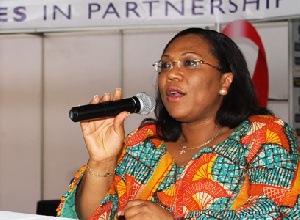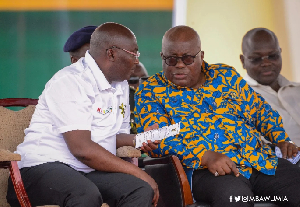The Ghana AIDS Commission (GAC) has rejected findings of the Dzamefe Commission report which indicated that the commission contributed to airlifting supporters of the Black Stars to the 2014 World Cup in Brazil.
In the Justice Dzamefe Commission’s report, Ghana AIDS Commission is listed among sponsors of the supporters as having donated GH¢3,500.
The Ghana AIDS Commission said it took advantage of an opportunity to advertise in the 2014 FIFA World Cup Magazine and sent out a clear message, targeting the youth and the Black Stars, on HIV prevention through safe sex practices.
A statement issued by Margaret Yeboah, Head of Communication of GAC, said GAC paid a sum of GH?3,500 for a full-page advert and a full-page write-up in the magazine.
“We consider this an effective medium to reach the teeming youth and football enthusiasts who read the magazine,” she said.
The Finder could not independently verify the position of Ghana AIDS Commission because the commission failed to produce any document to back its case. Efforts to get the Ministry of Youth and Sports to corroborate the position of the Ghana AIDS Commission also proved futile.
“We wish to state categorically that Ghana AIDS Commission never sponsored supporters to the World Cup in Brazil as indicated in the commission’s report and is being peddled in the media,” the statement said.
It noted that the Ghana AIDS Commission is the national co-ordinating body on HIV and AIDS, and is responsible for educating the public on how to prevent HIV and reduce stigma against PLHIV.
“Disseminating messages through the mass media is an extremely worthy venture. We will continue to take advantage of such sponsored advertisements and high-profile programmes,” it said.
The Global Community has set FAST TRACK targets for the next five years (2016-2020).
These new targets require countries to ensure that 90% of all persons living with HIV get to know their status; 90% of those who get to know their status will receive life-saving antiretroviral treatment and 90% of people who are on treatment will effectively have their viral loads suppressed.
Ghana can only achieve these results in the next five years if we are innovative in our prevention messages to sections of the general public while we ensure uninterrupted treatment services.
Ghanaians must avoid stigma and discrimination and work individually and collectively towards the attainment of these targets.
The Ghana AIDS Commission will continue to work assiduously to make services available to all Ghanaians.
Sports News of Tuesday, 29 September 2015
Source: The Finder

















